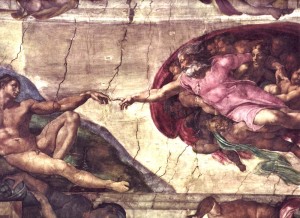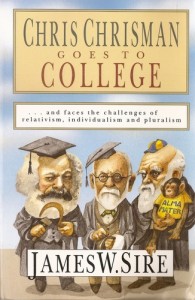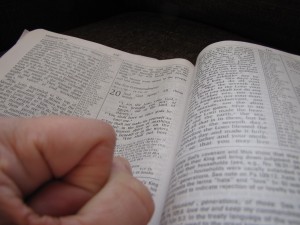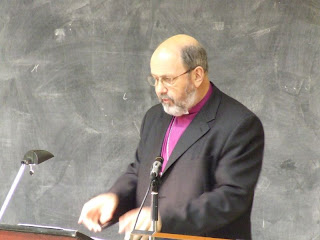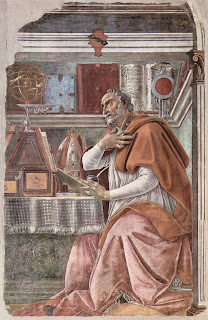There is a sneaking suspicion that lurks in the back of most of our minds.
A suspicion that colors the way we look at ourselves as well as the world around us.
It is the suspicion that sin has completely undone the goodness of Creation.
It is the suspicion that sin has broken our world and our bodies so thoroughly that there is nothing left to it but the ugly.
And if we view Creation through these dark lenses, we will treat it with contempt and shame. Even more, we will increasingly view the world, including our own bodies, as though they have nothing at all to do with God.
We will fall in line with our culture’s idea that we can live perfectly well in this world without ever thinking about how to consider with our lives the glorious reality of God’s Creation.
Without beginning our salvation story with Creation itself, without including in the gospel the amazingness of God-in-flesh, we are left with a hollow salvation, one that does the bare minimum to get us through the gates rather than one that accomplishes abundance upon abundance of redemption.
When God the Son died and resurrected, He redeemed not just our souls, but our physical bodies and the entire material world around us as well.
The stuff of creation is what God the Son redeems through his becoming flesh, bearing our sin, enduring death, and rising to life. When we have a truncated doctrine of creation, we have a truncated understanding of salvation. ~ Jonathan Wilson, theologian and author of God’s Good World
Romans 8 speaks of creation in the same terms it uses to speak of men. It speaks of creation as waiting to be redeemed, as yearning to be set free from bondage, as groaning as it waits in the exact same way that we groan as we wait for our own redemption.
We groan indeed. We groan as we labor through the pain of childbirth, we groan as we struggle to live life well and fail over and over to obey, we groan as we age and approach death.
We are a part of Creation and we groan and wait and hope right along with all of this material world for the return of Christ and for the redemption and perfection of all that we know.
And we would be a bit more successful in living our lives more beautifully if we would continue to consider the ways in which Creation should guide us toward or away from different patterns of life.
The glories of Creation and the ways in which God continues to interact with Creation have the possibility of helping us to understand how a “well-ordered life in the body presents opportunities for glorifying God and enjoying Him forever by participating more fully in the glorious giftedness of Creation”. (Ken Meyers of Mars Hill Audio Journal)
There is not room in a blog to explore such huge ideas in any depth at all. I only hope to spur on thought and seeking and exploring. Share with me what God shows you?
Art credit: The Expulsion of Adam and Eve from Paradise by Benjamin West

















